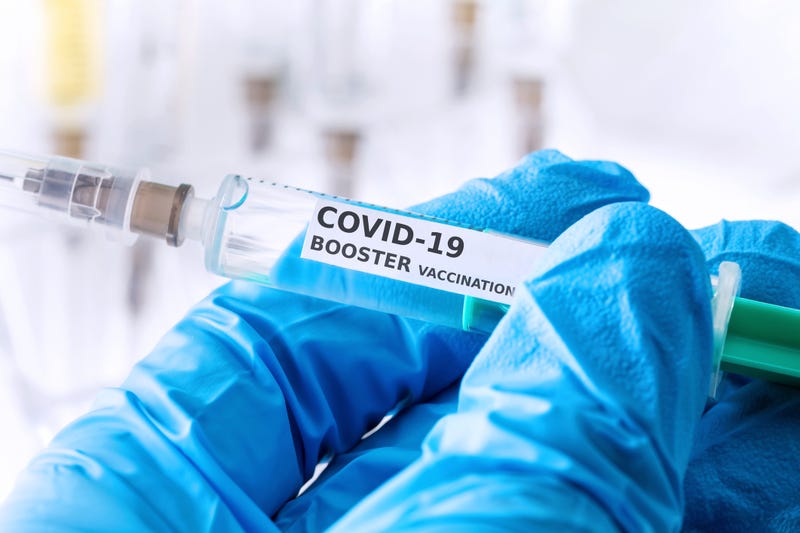
SAN FRANCISCO (KCBS RADIO) – It's been about a year and a half since the initial COVID-19 vaccine rollout.
For more, stream KCBS Radio now.
While the vaccines have been widely distributed, a lack of funding and other challenges could pose roadblocks to getting new boosters out to the public this fall.
"The biggest challenge is the sense that the pandemic is over or that it’s now in a highly manageable state, and so boosters just don’t matter," said Elizabeth Wrigley-Field, a sociology professor at the University of Minnesota’s Population Center on KCBS Radio's "Ask an Expert" on Monday with Melissa Culross.
This mindset has been coming from the Biden administration as well as the CDC, as the goal is to ease concerns about the pandemic, she said.
"But unfortunately it's undercutting vaccinations, which are the best tool that we have," said Wrigley-Field.
The new vaccines, the boosters, that are coming out are exciting because they will be specifically designed to combat the omicron variant and subsequent subvariants.
But this time, these vaccines are being rolled out with less funding and infrastructure than the first generation of vaccines.
When the vaccines came out the first time around, there was mass clinics adminsitering shots open at different times of day so people could access them regardless of work or other schedule constraints.
There was also a lot of collaboration with local organizations and community outreach to reach people who might not be able to access accurate information about the vaccine.
Many employers also mandated vaccination for employees to continue working or new hires looking to start.
"None of those things exist any longer and so I think this booster campaign is going to have some significant challenges," said Wrigley-Field.
It doesn't look like there will be any additional funding to bring some of these incentives back on a federal level, leaving it up to states to decide.
"I think there's a larger question that states have to confront – which is after the Great Recession, funding for state health departments was decimated, and it never recovered," she said.
The consequences of that are still plain now in the current pandemic. Some states have been unable to organize successful contact tracing and many were incredibly slow to get vital community outreach going in the first place.
"We could imagine another way that involves reinvestment but that's a decision states will have to make," she said.
Many of these outreach campaigns have since gone away. There will likely still be some outreach, but on a much smaller scale.
DOWNLOAD the Audacy App
SIGN UP and follow KCBS Radio
Facebook | Twitter | Instagram

